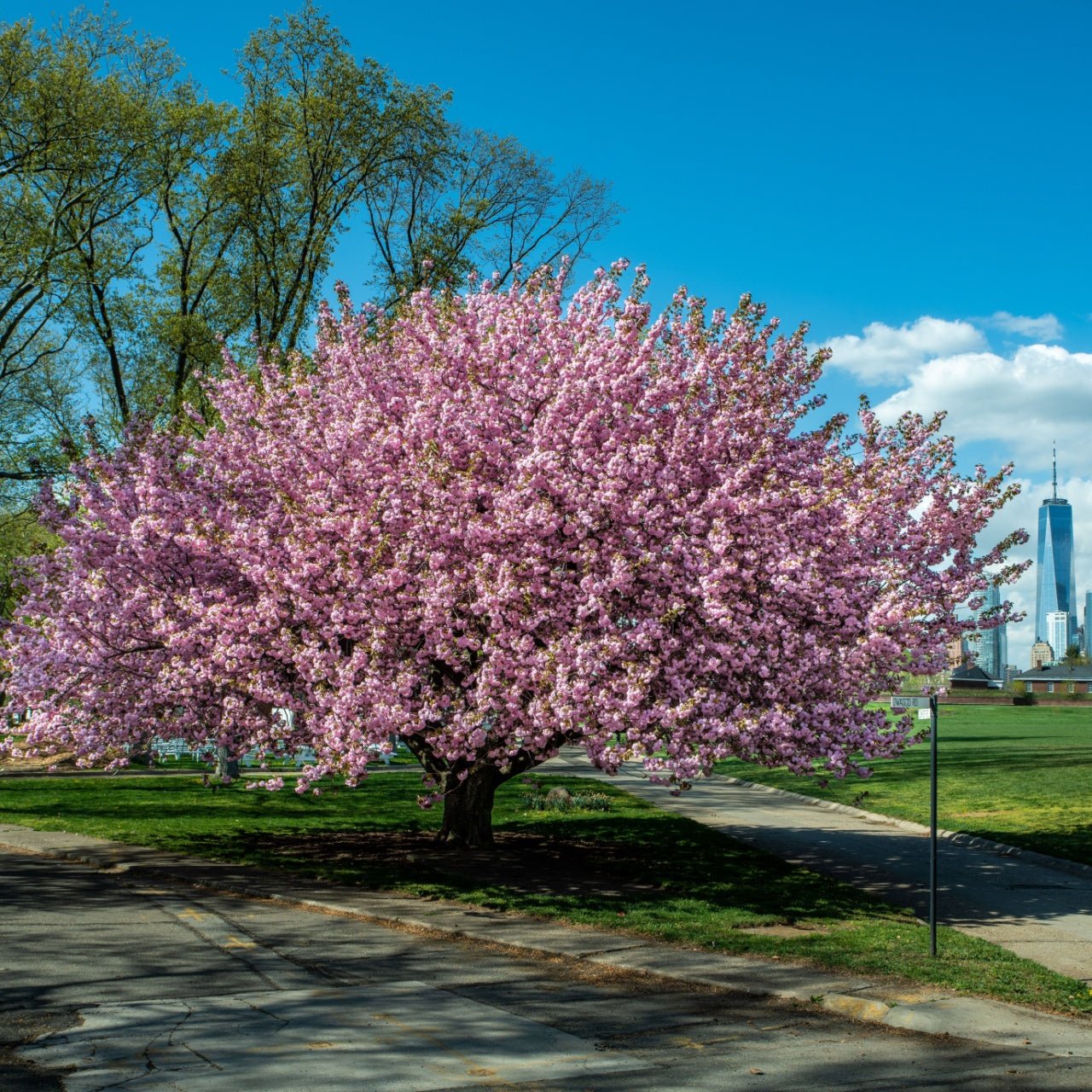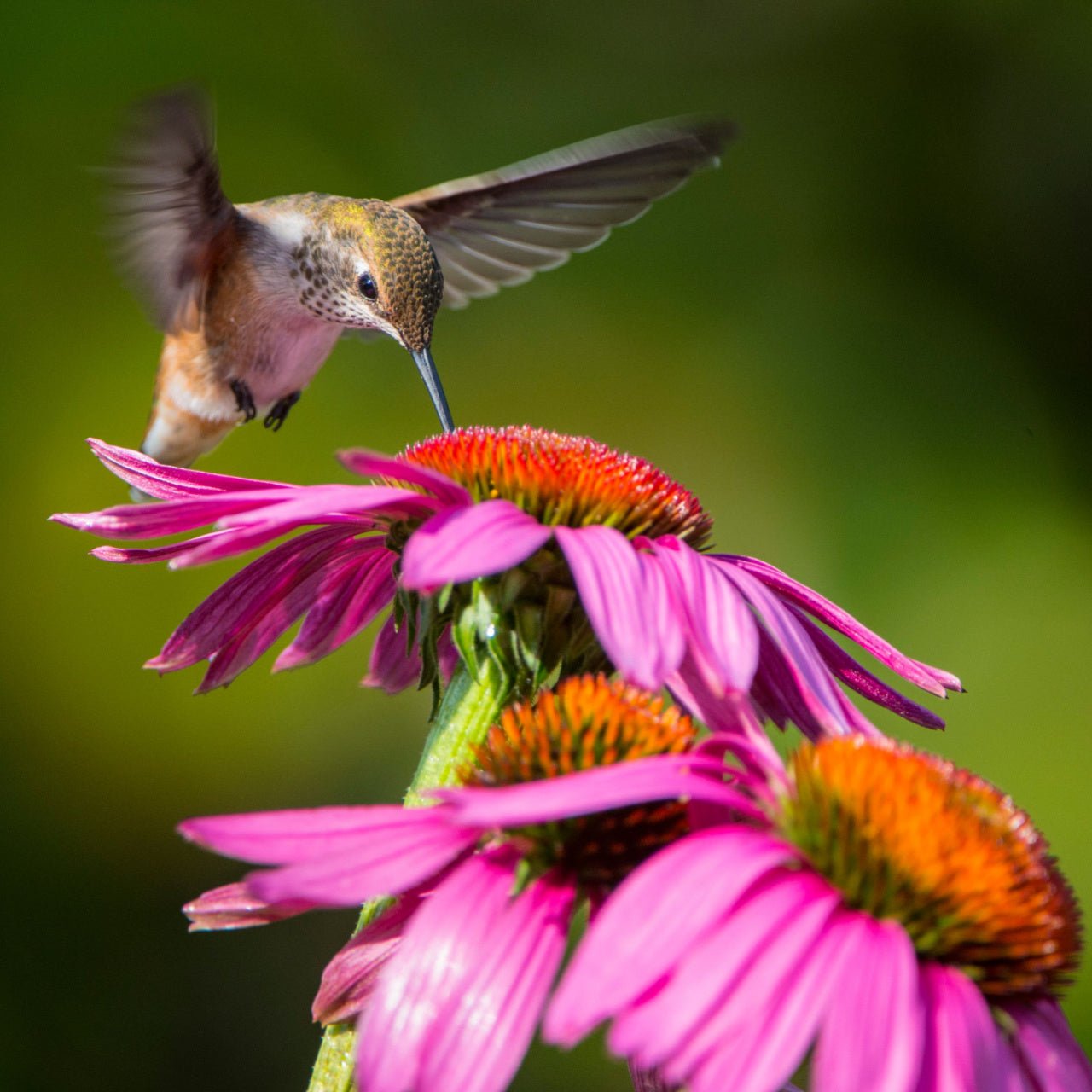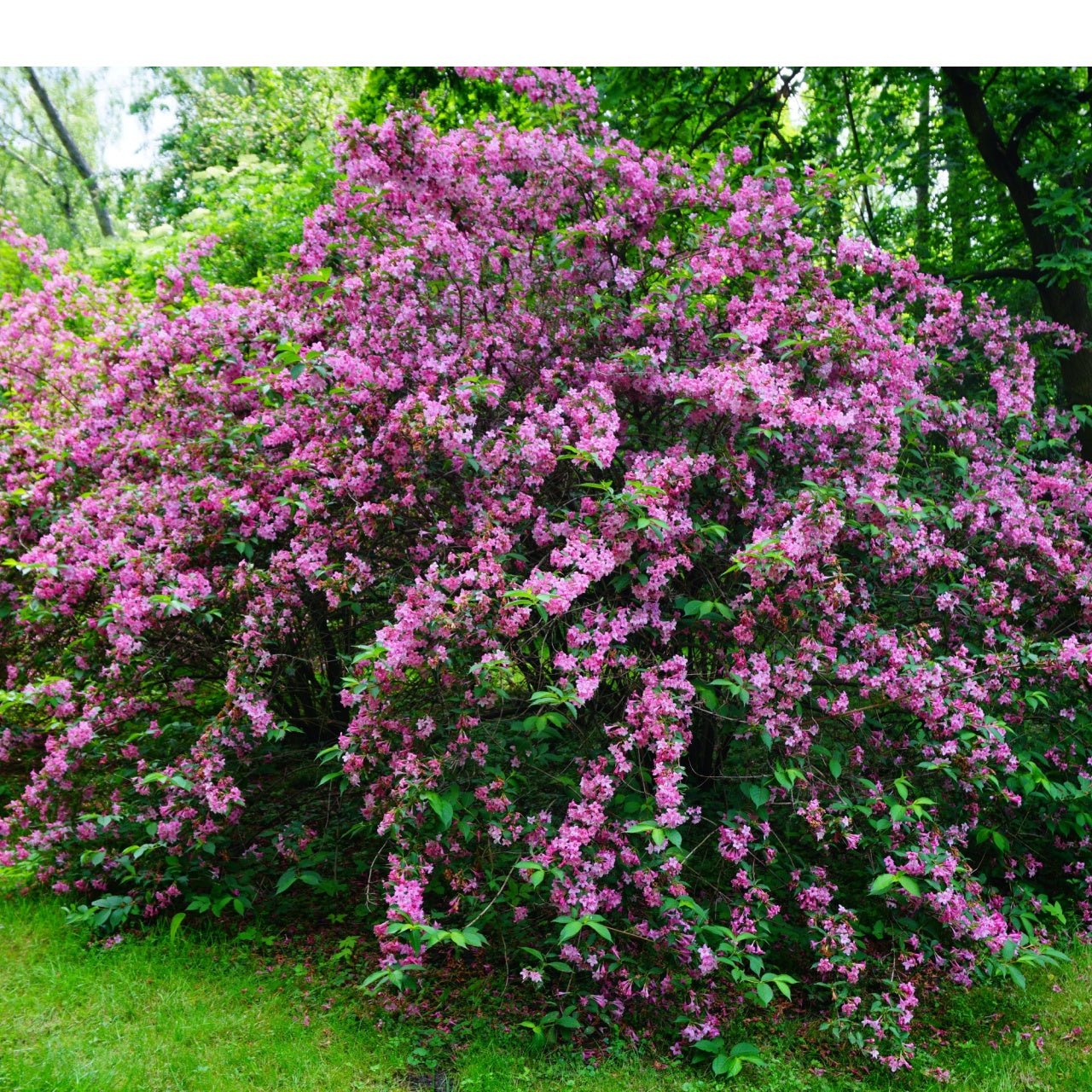

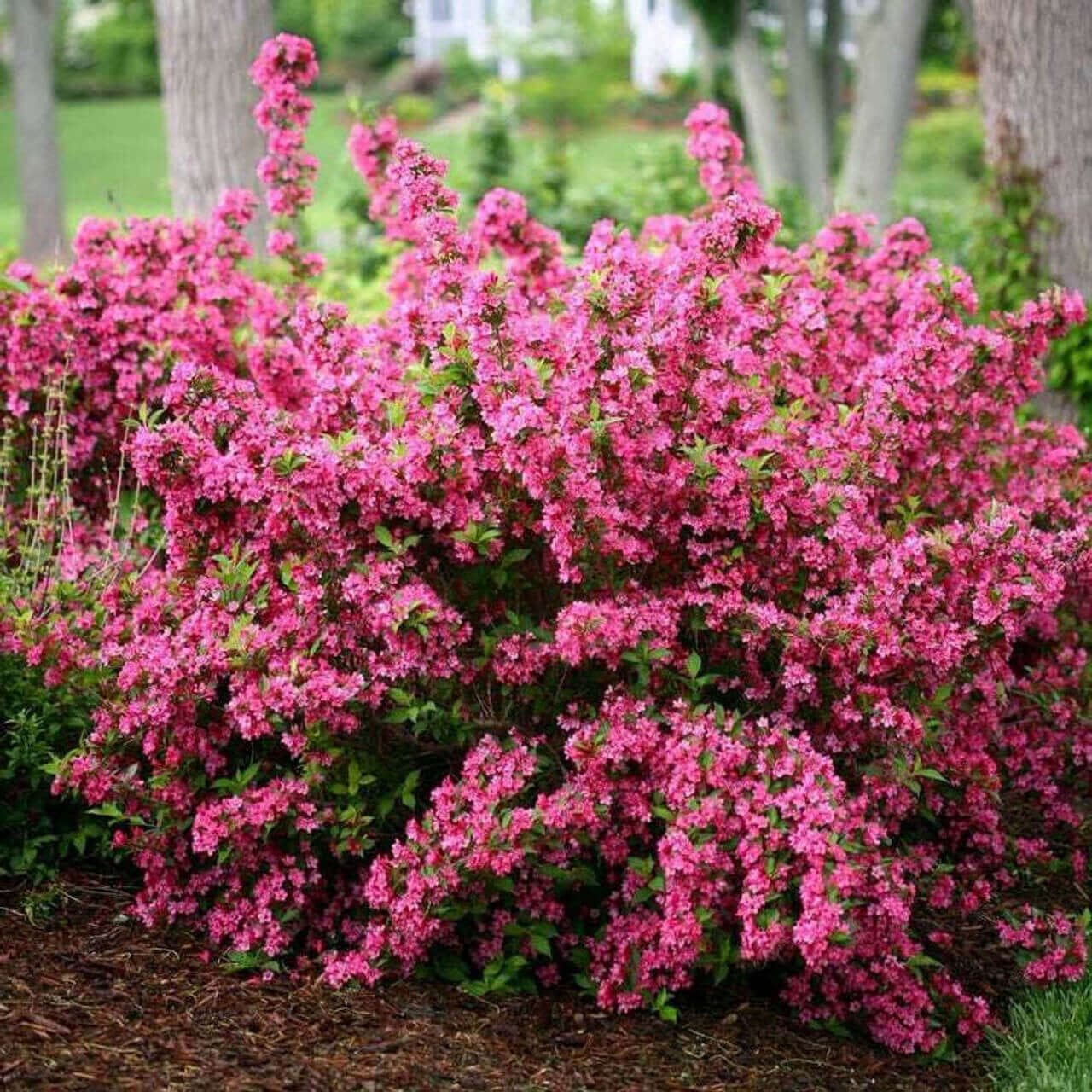

Pink Weigela
Attracts beautiful hummingbirds and butterflies
Blooms repeatedly throughout the season
Low-maintenance and easy to grow
Thrives in
ZONE 4ZONE 5ZONE 6ZONE 7ZONE 8This plant ships:
November 20251 Year Guarantee on all plants
Pink Weigela - Florida weigela
Pink Weigela (Florida weigela) is a densely foliated, deciduous shrub, with profuse and continuous flowering from spring until autumn. Native to North China, Korea and Japan, it can be found growing naturally along forest edges and scrublands where it has access to full sun conditions. In the garden, this weigela produces more blooms than any other variety of weigela to date. Naturally, the growth habit of this shrub is fountain-like in appearance however it will respond well to pruning. In spring, it produces ovate leaves with pointed tips and serrated edges. Soft, pliable and lush, the foliage of this beautiful shrub embodies a comforting sentiment in the garden. As the leaves senesce in autumn, this comforting feeling turns nostalgic as the foliage transforms to a rusty shade of purple.
Plant Details - Pink Weigela
Family: Caprifoliaceae
Hardiness Zones: 4 - 8
Light Requirement: Full sun to light shade
Water Needs: Moderate
Height: 2 - 6 ft
Spread: 3 - 6 ft
Growth Rate: Moderate to fast
Bloom Time: Late spring - early summer, with occasional rebloom in late summer
Flower Color: Shades of soft to bright pink
Wildlife Value: Attracts hummingbirds, butterflies, and bees
Flowers are produced continually in mass starting from late spring straight through to autumn on both new and old growth wood. With yellow stamens, the flowers have strikingly pink petals, creating a bright contrast to these trumpet-shaped blooms.
The beauty and profuse flowering of the Pink Weigela significantly contributes to a garden’s aesthetic appeal. Plant as a foundation focal point, in mass, or as a specimen. It is useful in a hedge, or windbreak as it has a dense growth habit. The shape of the flowers is particularly attractive to hummingbird; however, this shrub will be enjoyed by a myriad of pollinators throughout the flowering season.
Landscape Uses and Maintenance - Pink Weigela
This shrub is easy to grow and low maintenance. It grows well across a wide variety of soil types, growing best in well-drained, slightly acidic to neutral soil. Once established, it can be drought-tolerant. It has no pest or disease issues that are serious; it is cold hardy and resistant to deer browsing.
No deadheading is required for this beautiful shrub, however, remove old, interior branches from the center of the plant to enhance blooming the following year. It can grow in either sun or partial shade conditions, however full sun will yield the best flowering.
Noteworthy Characteristics
Profuse flowering, attractive to hummingbirds, easy to grow
Year after year, the profuse flowering, bright pink blooms, and green foliage of this easy to grow shrub will enhance the aesthetic appeal of your garden throughout the flowering season. Shop for Pink Weigela online at TN Nursery. For 68 years, we have served the landscaping industry and homeowners with specimen plants.
This Is How Your Plants Will Look upon Delivery

Bloom Season
Spring
Bloom/Foliage Color
Pink
Height at Maturity
Under 10 Feet
Care
Pink Weigela thrives in well-drained soil and benefits from regular watering, especially during dry spells. Prune after blooming to maintain shape and encourage new growth. Fertilize in spring to support vibrant blooms.
Plant Reproduction
Pink Weigela spreads via suckers, seeds, and root expansion
Plant bare-root shrubs during the more excellent spring or fall months, from November through April. Dig a hole twice as wide as the root system and slightly more profound than its height. Position the shrub so that the top of the roots is level with the ground, and put back the soil dug over the roots. Apply a 2-3 inch layer of mulch around the base to retain moisture and suppress weeds, ensuring the mulch does not touch the shrub's stem. Water regularly, especially during the first year, to establish strong roots. Prune shrubs as needed to promote healthy growth. In the spring, fertilize with a balanced, slow-release fertilizer suited to the specific needs of the shrub.
Shipping date depends on the date displayed and chosen when you order from the product's page.
We only accept returns on plants verified dead. If you think your plants have died, we offer a 1 year warranty, please use this File a Claim Link to verify dead plants and start with return warranty process.





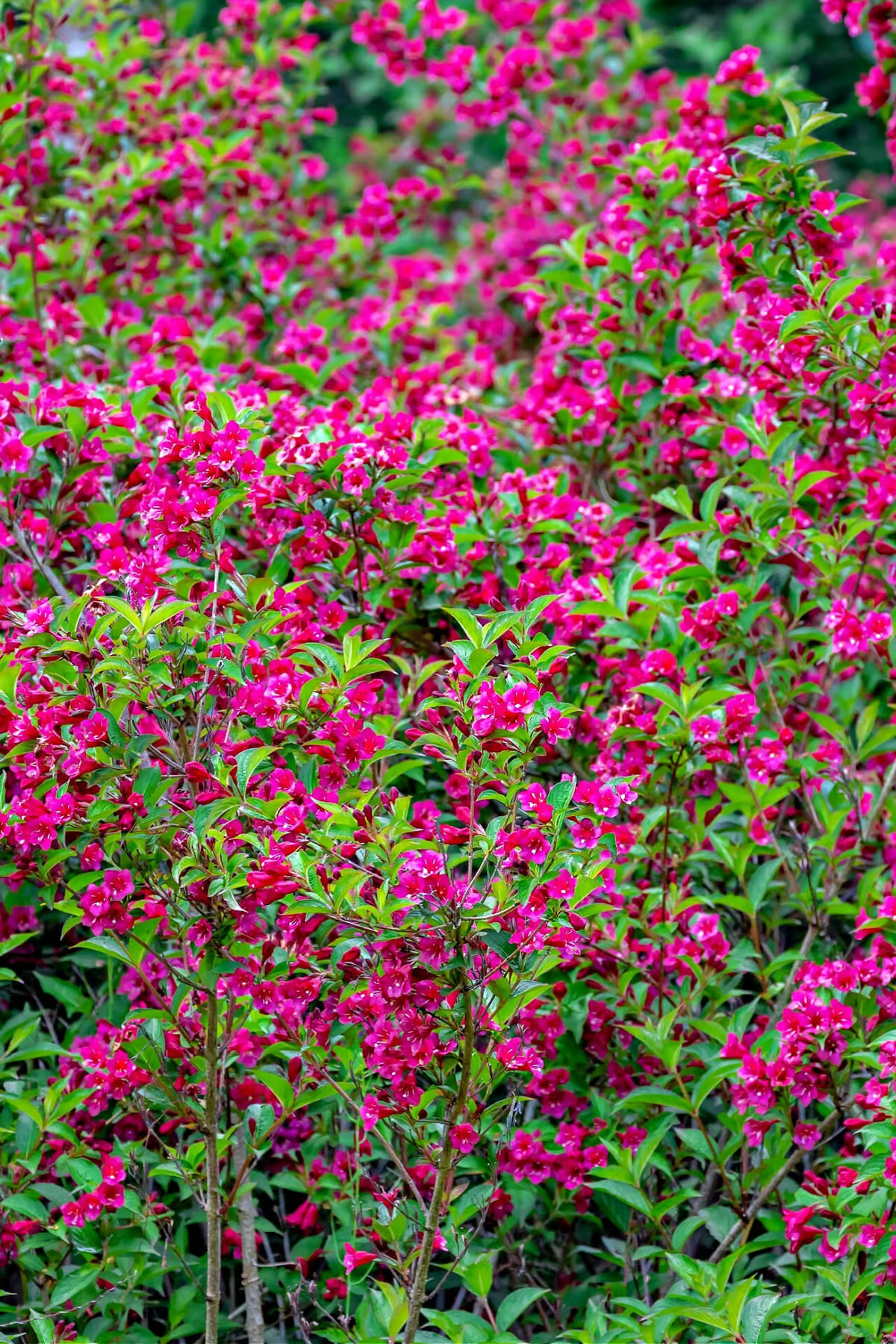
Compact Size:
Its moderate size makes it suitable for both small and large gardens, providing flexibility in your landscaping design.
Vibrant Pink Blooms:
The Pink Weigela bursts with vibrant pink flowers in the spring and summer, adding a stunning splash of color to your garden.
Attracts Pollinators:
Its beautiful flowers are known to attract bees and butterflies, making it a great choice for a pollinator-friendly garden.
Low Maintenance:
This plant is easy to care for, requiring minimal pruning and maintenance while providing a lush, attractive appearance.
Caring Tips
How do I care for my Pink Weigela?
Each box contains detailed care instructions and information about your product. But here's the basics.
Care Tips
Pink Weigela thrives in well-drained soil and benefits from regular watering, especially during dry spells. Prune after blooming to maintain shape and encourage new growth. Fertilize in spring to support vibrant blooms.
Light Requirements
Pink Weigela thrives in full sun to part shade, with 6 hours of direct sun daily. Full sun encourages optimal blooming and vibrant foliage, while partial shade is acceptable in hotter climates to prevent leaf scorch.
Hardy Planting Zones
4 • 5 • 6 • 7 • 8
Header
Use this content to share information about your store and products.
Frequently Asked Questions
How often should I water my plants?
How do I know if my plant is getting too much or too little sunlight?
What should I do to prepare my plants for winter?
What are the signs that my plant needs fertilizing?
How can I prevent pests from damaging my plants?
How do I choose the right plant for my climate zone?






